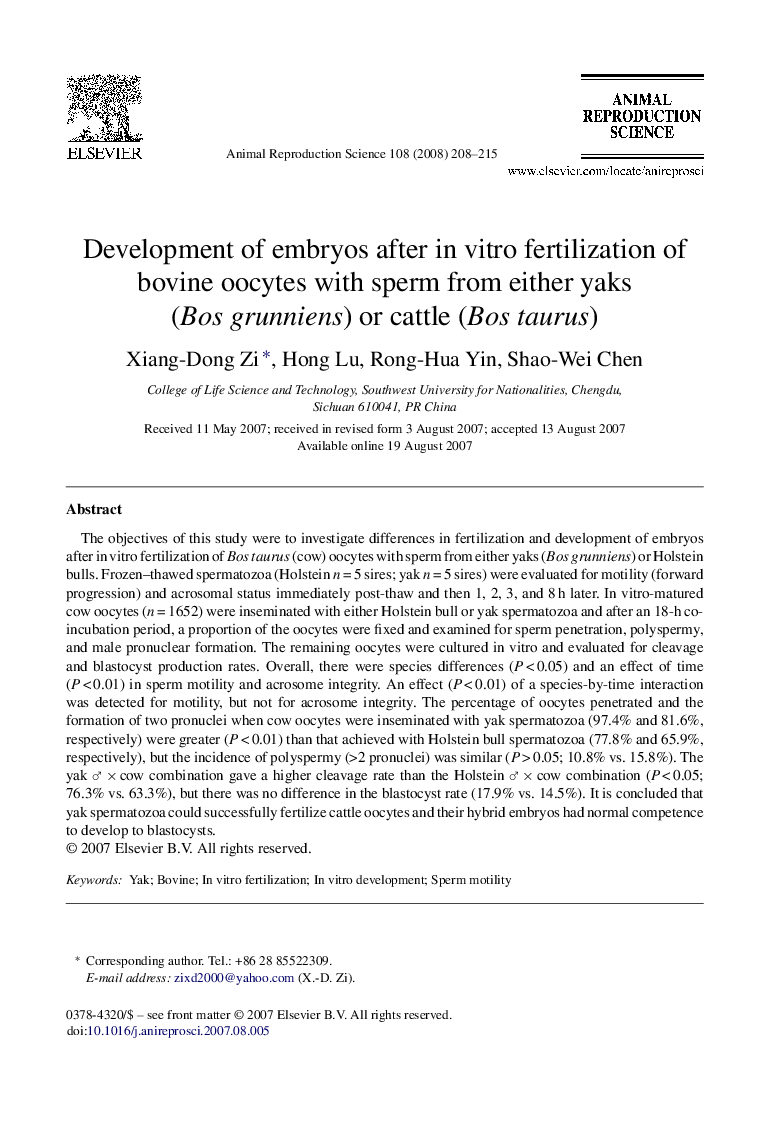| Article ID | Journal | Published Year | Pages | File Type |
|---|---|---|---|---|
| 2074677 | Animal Reproduction Science | 2008 | 8 Pages |
The objectives of this study were to investigate differences in fertilization and development of embryos after in vitro fertilization of Bos taurus (cow) oocytes with sperm from either yaks (Bos grunniens) or Holstein bulls. Frozen–thawed spermatozoa (Holstein n = 5 sires; yak n = 5 sires) were evaluated for motility (forward progression) and acrosomal status immediately post-thaw and then 1, 2, 3, and 8 h later. In vitro-matured cow oocytes (n = 1652) were inseminated with either Holstein bull or yak spermatozoa and after an 18-h co-incubation period, a proportion of the oocytes were fixed and examined for sperm penetration, polyspermy, and male pronuclear formation. The remaining oocytes were cultured in vitro and evaluated for cleavage and blastocyst production rates. Overall, there were species differences (P < 0.05) and an effect of time (P < 0.01) in sperm motility and acrosome integrity. An effect (P < 0.01) of a species-by-time interaction was detected for motility, but not for acrosome integrity. The percentage of oocytes penetrated and the formation of two pronuclei when cow oocytes were inseminated with yak spermatozoa (97.4% and 81.6%, respectively) were greater (P < 0.01) than that achieved with Holstein bull spermatozoa (77.8% and 65.9%, respectively), but the incidence of polyspermy (>2 pronuclei) was similar (P > 0.05; 10.8% vs. 15.8%). The yak ♂ × cow combination gave a higher cleavage rate than the Holstein ♂ × cow combination (P < 0.05; 76.3% vs. 63.3%), but there was no difference in the blastocyst rate (17.9% vs. 14.5%). It is concluded that yak spermatozoa could successfully fertilize cattle oocytes and their hybrid embryos had normal competence to develop to blastocysts.
